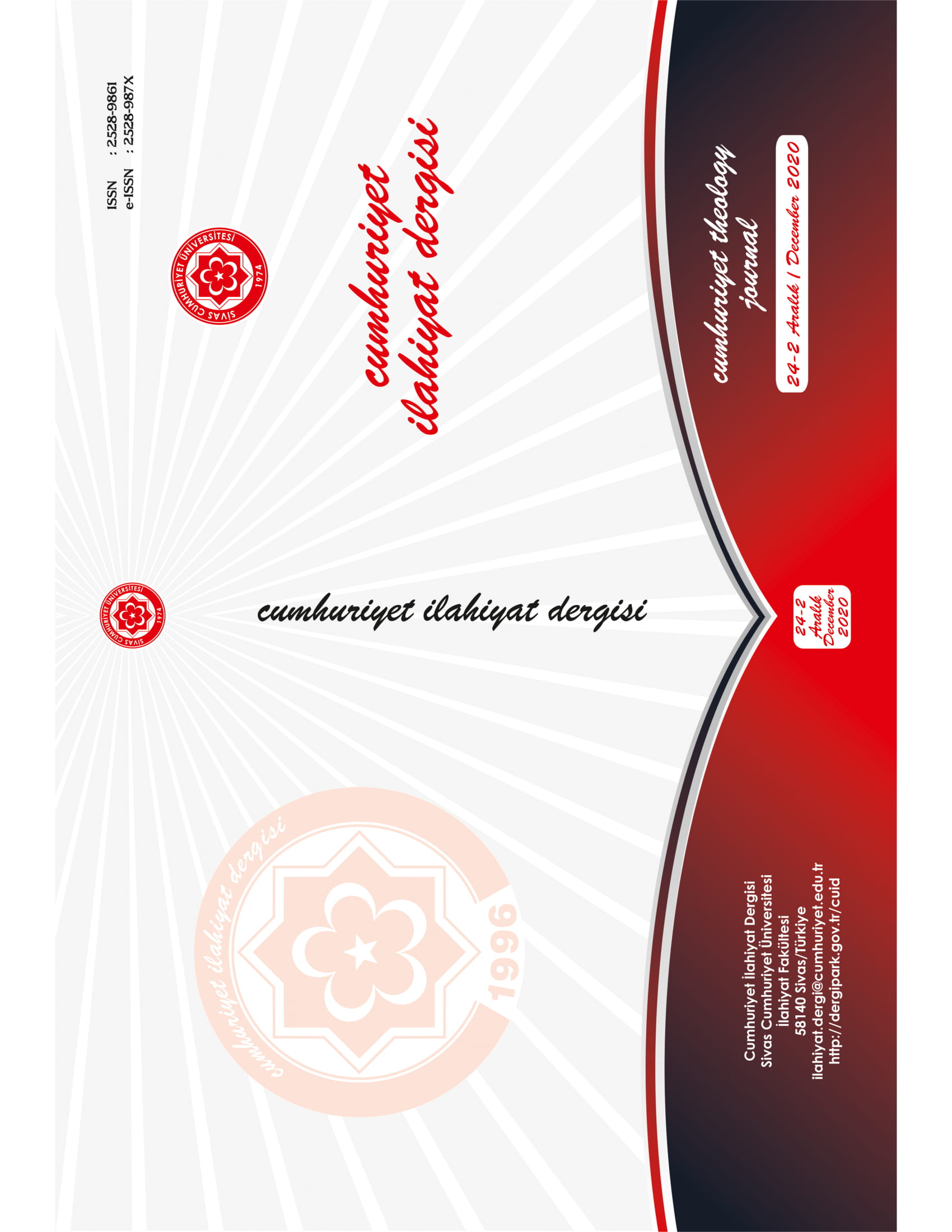Din Perspektifinden Obsesif-Kompulsif Bozukluklar: Modern Yaklaşımlar ve Ebû Zeyd El-Belhî’nin Katkıları
Obsessive-Compulsive Disorders from the Perspective of Religion: Modern Approaches and the Contributions of Abū Zayd al-Balkhī
Author(s): Ömer Faruk SöylevSubject(s): Psychology, Theology and Religion, Clinical psychology
Published by: Cumhuriyet Üniversitesi İlahyat Fakültesi
Keywords: Psychology of Religion; Spiritual Counseling; Obsessive-Compulsive Disorder; Scrupulosity; Treatment Approaches;
Summary/Abstract: The history of mental illnesses is as old as human history. Mental disorders are affected by changing social and cultural factors during the historical process, and have been conceptually restructured and their definitions and classifications have been changed. The evolution of obssessive-compulsive disorders with roots as old as human history into modern concepts took place in the 19th century. The first scientific views on the spiritual origin of OCD belong to S. Freud. Freud observed that mental causes in OCD are different from other mental disorders, and he examined obsession as a separate and specific disorder. Over time, it has been understood that OCD is a very common disorder. The American Psychiatric Association (APA) has classified OCD under an independent title in the latest version of the Diagnostic and Statistical Manual of Mental Disorders (DSM-5) by removing it from the category of anxiety disorders. OCD is a mental disorder caused by mental actions such as obsessive thoughts (obsessions) and / or repetitive and compulsive behaviors (compulsion). The patient is often aware that such thoughts and behaviors are irrational and absurd. For this reason, he tries to get away obsessive thoughts that he finds contrary to his beliefs, opinions, moral values and logic from his mind. However, as he tries, obsessive thoughts become more and more frequent and create a great anxiety in the person. This time, the patient resorts to compulsions to alleviate the anxiety he feels or to get rid of it completely. As his compulsions repeat, his anxiety increases and he goes into a vicious circle. There are many symptom subgroups of OCD that seriously worsen the quality of life of the individual. One of these, and even the most overwhelming, is religious obsessions. It has been thought that there has been a relationship between religion and OCD for a long time in the psychology literature, and some remarkable studies have been conducted to clarify this relationship. Although there are many research findings showing that religion is an indispensable element in the protection of the mental health integrity of the individual, some forms of religious understanding and some experiences gained as a result of religious experiences may affect the concerns about OCD. This stage of religiosity is closely related to some sub-symptom groups of OCD. The explanations of the founder of the psychoanalytic method, Freud psychoanalytic method, and his followers made a great contribution to the understanding of OCD. However, since the psychoanalytic method exhibits a theoretically reductionist approach to religion, it is possible that the individual's devotion to religion is initially evaluated as a pathology or at least an important obstacle to insight. Today, cognitive behavioral psychotherapies are considered the most effective psychological treatment method for OCD, but their success rates in the treatment of religious OCD are low. Since religious OCD concerns often involve spiritual issues rather than concrete repeatable situations, behavioral methods can be quite difficult to apply in the treatment of religious OCD. Therefore, traditional psychotherapy approaches, even if they are not openly against religions, are insufficient to relieve the suffering in the lives of individuals with religious obsessions, as they generally neglect the religious dimension. Due to the vacuum that arises from restricting spiritual treatments to secular approaches, religious patients are threatened by the illegal practices of people who abuse religious feelings. Clinically, religious obsessions are more worrying and overwhelming. Therefore, their treatment is more difficult than others. Selective approaches that use different scientific disciplines together in the treatment of OCD and can stretch around religious beliefs and values can create more effective treatment models. Thus, the success rate in the treatment of religious OCD can be carried to higher levels thanks to the appropriate cooperation of the disciplines of medicine, psychology and theology. There is a rich religious cultural heritage that can support this collaboration in terms of theological disciplines. As an example, Abū Zayd al-Balkhī (d. 322/934), in his Maṣāliḥ al-abdān wa-l-anfus, probably made a clear distinction between neuroses and psychosis and classified neurotic disorders for the first time about ten centuries before Freud. In this study, the importance of approaching to religious obsessions as both a psychological disorder and a theological problem is emphasized. For this reason, cooperation of psychiatric and psychological approaches with spiritual counseling and guidance is recommended in the treatment of religious OCD. The difficulty in distinguishing whether the symptoms seen in a religious person are normal, natural religious thoughts and behaviors of religious life or abnormal appearances in the religious guise necessitates this interdisciplinary cooperation.
Journal: Cumhuriyet İlahiyat Dergisi
- Issue Year: 24/2020
- Issue No: 2
- Page Range: 891-909
- Page Count: 19
- Language: Turkish

